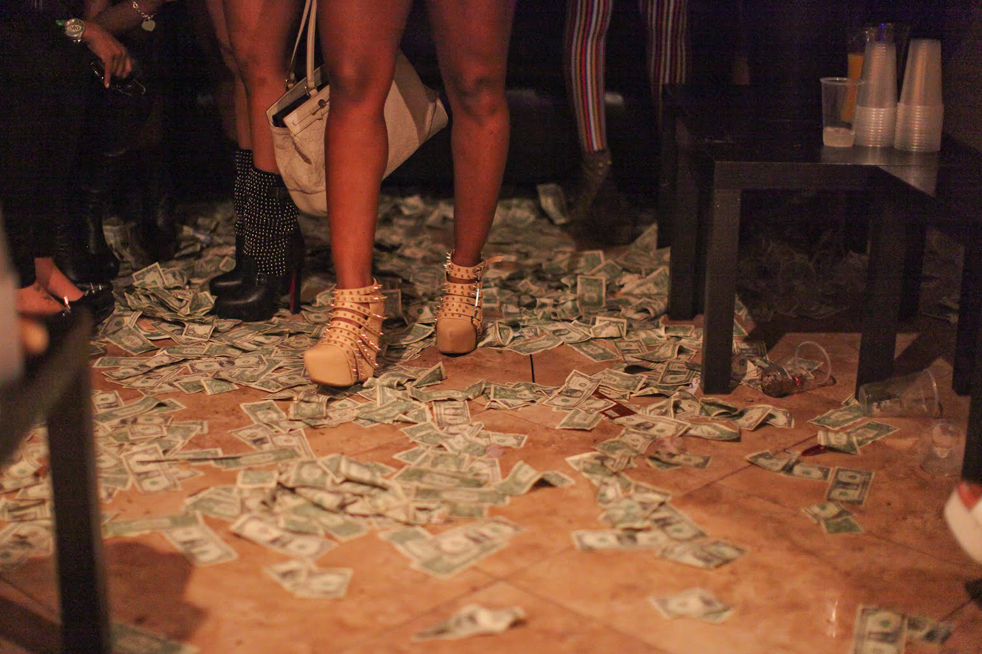This piece is a long time brewing. I’ve been at Tech for four years now, and have been a bystander in countless situations in which this subject is brought up. Often it happens when people are under the influence, bored on a weekend night or just lacking more productive ways to spend their time, but I’ve heard “What if we went to the Cheetah?” more times than I can stand.
Couple that with the fact that strip clubs now actively and aggressively court Tech students (including emails to Greek chapter presidents addressing the “handsome men of Georgia Tech”) and it seems that it’s about time we call this exactly what it is: paying to humiliate and objectify women.
First, let’s get the easiest argument out of the way: “It’s their choice.” Statistics on past abuse of sex workers vary, but most reports estimate that between 75 to 95 percent of women in the sex industry were sexually abused as children.
Organizations working with these women in Atlanta see the faces behind these numbers every day. A pedophilic uncle, a sexually abusive boyfriend, a sports coach who watched her shower—these are stories that are all too easy to come by. A woman’s choice to become a sex worker can be likened to a paraplegic’s choice not to walk: The trauma they have suffered prevents them from doing anything else.
You use your money to purchase the right to humiliate and harass another human being.
To picture strip clubs differently, think about a female friend walking down the street. Now imagine someone coming up and shoving a dollar bill (or a five dollar bill if she’s lucky—right?) into her undergarments. But wait! That’d be harassment! That’d be assault! She’d call the police!
So what’s the difference between that and what goes on at strip clubs? At a strip club, you pay for it. You use your money to purchase the right to humiliate and harass another human being. In any other situation, this would be illegal.
But they volunteer for it, right? Clearly, these women have signed up for this. But if someone volunteered to be punched in the face for your entertainment, would you swing at them? Does that really make it okay for you to be hitting them?
In the past few years, the issue of sex-trafficking has received increased attention and rightly so. The interesting disconnect happens when people who are aware of the issue and feel strongly against it—sometimes even to the point of activism—don’t see its connection to something as “normal” and societally accepted as a strip club.
They’re totally different issues, right? Wrong.
Most of the women who work at strip clubs in Atlanta either are or have been prostitutes at some point. Chances are that some (or most) of these women are technically, legally, victims of sex-trafficking. By supporting strip clubs, like it or not, you’re supporting sex trafficking.
Are you ready to take ownership of your actions?
Here are some more dirty secrets of the sex industry. Maybe you didn’t know the facts before, that 68 percent of sex workers meet criteria for post-traumatic stress disorder (a rate equivalent to combat war veterans) or that 89 percent of women in the sex industry say they want to escape.
Maybe you hadn’t really thought deeply about it—well now you do and now you have. Let’s be the “handsome men (or women) of Georgia Tech” who are known not for frequenting strip clubs but for being the smartest, hardest-working, best damn helluva engineers out there.
So the next time all your friends want to go to the Cheetah, I urge you to think, honestly and accurately, about exactly what you’ll be doing there. You will be exploiting someone’s daughter, mother, sister or friend, and you will be paying money for the right to do it.
Are you ready to take ownership of your actions?
